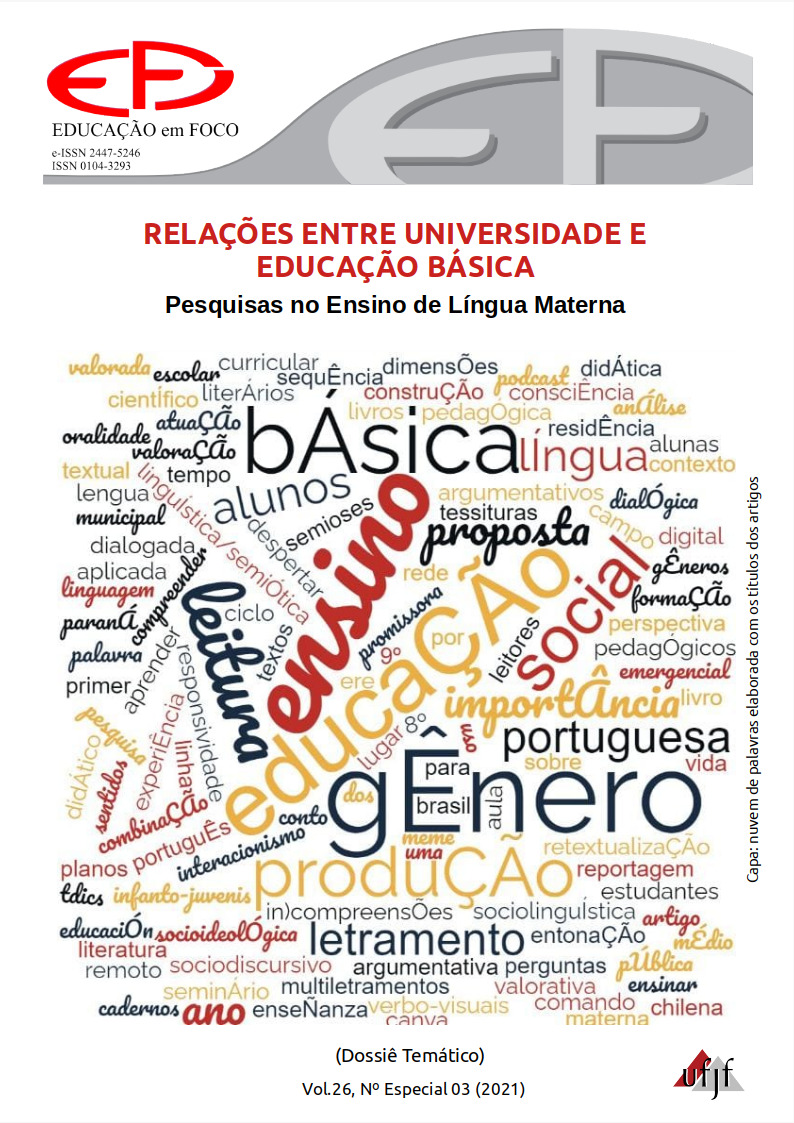COM A PALAVRA, AS ALUNAS E OS ALUNOS:
O SEMINÁRIO ESCOLAR
DOI:
https://doi.org/10.34019/2447-5246.2021.v26.36363Abstract
A school seminar presentation can be comprehended as an event of literacy (VIEIRA, 2007) mainly constituted by three stages: (1) planning; (2) execution; (3) debate and evaluation. Each of them includes different activities, which are organized from a diversity of textual genres. In this paper, we focus on the stage of execution of school seminar presentations in the context of High School. Our interest is the oral exposition genre. Our aim is to propose discussions related to
didactic and discursive strategies used in this genre (MATENCIO, 2001), in order to further understand the conception of school presentation and its procedures. Our starting points are the theoretical contributions of Marcuschi (2001); Schneuwly (2004); Dolz et al. (2004), among others. Our corpus is constituted by five oral expositions, which have been part of a didactic sequence. The expositions were filmed and then transcribed according to the norms (PRETI, 1999) that are specific to the analysis of descriptive and interpretive nature. Our results suggest that (a) students perceive the structural stages of the school seminar presentation, (b) they comprehend the objectives of the task. On the one hand, we observed potential contributions of teaching and learning techniques which consider the dimensions of orality in the event school seminar presentation and in the goal genre oral exposition. On the other hand, we still observed practices related to the conception of school presentation as the sum of “parts” shared between the members of a group.
Keywords: school presentation; oral exposition genre; Portuguese Language; High School.
Downloads
Downloads
Published
How to Cite
Issue
Section
License
Ao submeter um artigo à revista Educação em Foco e tê-lo aprovado, os autores concordam em ceder, sem remuneração, os seguintes direitos à Educação em Foco: os direitos de primeira publicação e a permissão para que Educação em Foco redistribua esse artigo e seus metadados aos serviços de indexação e referência que seus editores julguem apropriados.

















